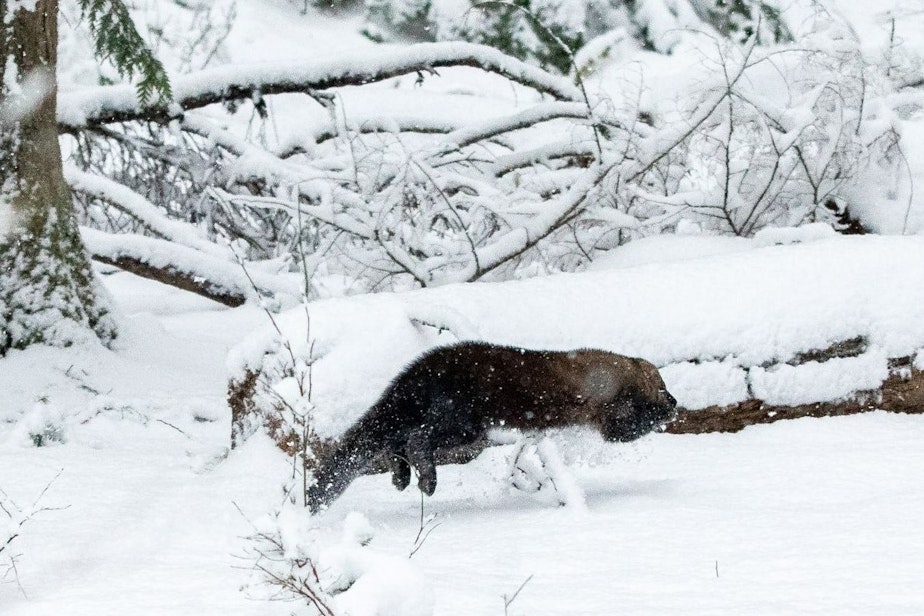Lawsuit aims to protect a rare West Coast carnivore, the fisher

You can tell that the fisher is a tough customer by its diet. The furry forest carnivore with a long bushy tail is known for its rare ability to eat porcupines.
“The fisher's ability to descend trees head-first, aided by its retractable claws, helps it to approach the porcupine stealthily, attacking the only quill-free spot on its body — the face,” according to Nature Conservancy Canada.
But the fisher has been no match for another dangerous species: Homo sapiens.
Trapping, logging, rat poison, and, most recently, human-caused climate change have pushed the fisher to the brink of extinction in the United States.
The Center for Biological Diversity petitioned the federal government to protect the fisher under the Endangered Species Act more than 20 years ago.
Sponsored
A fisher pauses before disappearing into the wilds of Mount Rainier National Park in 2018 in this clip from a National Park Service video. The bushy-tailed carnivores are considered an endangered species in Washington state but have been denied federal endangered-species protections in most of their range on the U.S. West Coast.
The U.S. Fish and Wildlife Service agreed the fisher deserved endangered-species protection but said other species’ recovery efforts – many of them court-ordered – were higher priorities for the agency’s limited funding.
Eventually, the Fish and Wildlife Service agreed to protect fishers, but only in Southern California.
Now the activist group is suing to give the fisher endangered-species protections up and down the West Coast.
Here in Washington, wildlife officials have released 279 fishers from Canada in the Cascades and Olympics over the past 15 years in hopes of reestablishing the forest dwellers locally.




